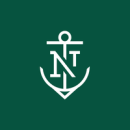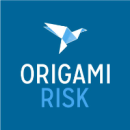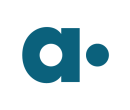Innovative and cutting-edge are classic tech clichés. If companies aren’t careful, “people first” will soon be added to that list, given how overused it has become during the pandemic. In the battle to retain talent and recruit top candidates for open roles, companies have been working overtime to advertise how they put their people first. For candidates, the natural question has become: “What does that even mean?”
That’s the question we posed to eight Chicago tech companies. We heard back that a people-first culture involves asking employees for their feedback and making tangible changes based on what is learned. Being people first also means measuring your efforts to ensure employees are actually happy and not just not complaining.
That’s the high-level summary, anyway. Continue reading to learn in detail how these companies, all of which are hiring, orient their cultures and benefits around their people.
What steps has Green Thumb taken to foster a people-first culture?
We’re a fast-growing startup and previously had a strong in-office culture at our Chicago HQ, and it was difficult to anticipate the varying needs of employees transitioning to a remote workspace. We didn't pretend to have the answers. Instead, we encouraged leaders to work with employees, accommodate and lean into the human behind the job. Employees were thrust into the unpredictability of being at home with any number of unplanned “guests,” including kids, significant others, pets and beyond. Instead of trying to block that out or ignore it, we encourage teams to keep their videos on, find out the cat’s name and who the little guy making all that noise was.
We encourage creative solutions that keep our team productive while accommodating what’s happening in real life. Prior to the pandemic, we had a comprehensive, three-day in-person onboarding experience. Amid a flurry of challenges, we were able to adapt the program and virtualize it as we didn’t want to sacrifice what we felt was a critical piece of the new hire experience. We’ve continued to have new hire classes every four to six weeks. The positive feedback we’ve received has been incredible, and I’m proud of the team’s ability to not just maintain but increase engagement over the past two years.
What perks, benefits or other offerings help support a people-first company culture?
We are constantly assessing our total rewards packages and looking for opportunities to expand and diversify our offerings. We recently had a lot of interest in increased mental health resources. So, this year for the first time we’re offering TalkSpace — an online resource for teletherapy — at no extra cost. As our company matures and evolves, we regularly evaluate if our total rewards offerings reflect the priority and values of the people in our organization. And, oh, the 40 percent discount on Green Thumb products doesn’t hurt either.
How do you gauge the effectiveness of these efforts and ensure employees feel valued and supported? And what are some ways you’ve adapted your strategy in response?
We have a strong culture of feedback among employees. Our workforce is vocal and we’re proud of that. We ask for feedback both formally and informally many times throughout the year. Sometimes it’s via survey, debrief sessions following a company event or by simply encouraging employees to participate in the feedback loop between themselves, the management team and our people team.
Recently, we did our first formal companywide engagement survey, which included direct feedback from every part of the organization to every level of leadership. Our leaders are currently engaged in an action planning process that’s tailored to their specific departments and teams. That process includes participation from every department at every level and includes the Green Thumb executive team. It’s a big undertaking but we’re excited to see the results.
What steps has Northern Trust taken to foster a people-first culture?
All employees at Northern Trust are called “partners,” regardless of level, fostering an inclusive and collaborative environment. Partners can focus on well-being with comprehensive benefits and professional development opportunities. Corporate social responsibility (CSR) and philanthropy are essential elements of our culture and all partners play a role. An educational assistance program is also offered, and I actually obtained my MBA through it.
Throughout my program I had two different managers, both of whom were deeply invested in my education. While enrolled in a course on change management, my work team managed the transformation of our business unit’s intranet. I applied the strategies I learned in class directly to how we managed this highly visible initiative, enhancing not only my own knowledge but also the quality of our delivery. Through Northern Trust’s annual volunteer campaign, I was introduced to Chicago Scholars where I helped underprivileged students apply to college. I found this experience so rewarding I applied to be a formal mentor this year.
What perks, benefits or other offerings help support a people-first company culture?
Community engagement opportunities and two paid days off for volunteering not only enhance our communities but also drive partner engagement. Partners serving on nonprofit and civic boards develop leadership skills and networks. During our annual volunteer campaign in October 2021, partners logged more than 12,000 hours of service in support of more than 800 organizations globally. For every hour of service, 50 meals were donated to organizations fighting hunger, further amplifying partners’ contributions.
Eleven partner-led business resource councils direct resources to support the development of an inclusive culture by providing professional development opportunities and insights, attracting diverse talent and enhancing cultural understanding. The employee assistance program provides confidential assistance around a variety of issues that partners and families are facing. Through the well-being program, partners can enroll in team workout challenges and earn rewards by achieving personal health goals.
How do you gauge the effectiveness of these efforts and ensure employees feel valued and supported?
Northern Trust’s commitment to a people-first culture is built into our corporate strategic priorities, which are informed by feedback from our annual engagement survey and additional other feedback mechanisms. To foster transparency and share our progress on our commitments to diversity, equity and inclusion, community engagement and environmental sustainability, Northern Trust publicly publishes an annual CSR report and frequently shares updates internally through town halls.
For Covid-19, Northern Trust convened a cross-functional taskforce and focus groups to develop and refine a framework around the future of work. As a result, partners have more options for flexible work, enhanced technology and training for working in hybrid work environments. As health and safety considerations continue to evolve, Northern Trust continues to make adjustments that promote the well-being of partners, clients and key stakeholders.
What steps has Vivid Seats taken to foster a people-first culture?
We are passionate about providing compelling experiences for our employees. This starts with our job descriptions where we detail what to expect in the first 30, 60 and 180 days. On day one, employees enter a robust onboarding program where they learn about the business and their impact, fully integrate with their team and our culture, and align on clear goals. The year-long program is driven by thoughtful touchpoints with managers, leaders, stakeholders, the people team and peers.
Our touchpoint program allows us to customize the onboarding experience in a way that focuses on the individual employee’s well-being, development and success. We utilize newsletters and town halls to recognize employees who exemplify our values, provide space for Q&As with leadership and highlight fun facts about our people! We also host multiple events to promote wellness, celebrate our teams and cultivate connection.
2021 was a milestone year that saw the return of live events and our IPO. While it is traditional for the senior leadership team to represent the company at the opening bell for the NASDAQ, we brought members from every team and level to stand together and celebrate the moment.
What perks, benefits or other offerings help support a people-first company culture?
We believe that all employees are owners in creating exceptional experiences for our customers and each other. To make that ownership more tangible, we provide every single employee equity. We also have the unique benefit of being a marketplace for live events. Every employee receives a $100 monthly credit to live events on top of a 20 percent discount on all tickets.
To make the hybrid or remote working model more convenient, all our employees receive monthly care packages delivered right to their front door along with a $480 annual work from home stipend. We also provide a “learn on us” program that reimburses employees for self-learning on social injustices in addition to a speaker series where employees can hear from a variety of diverse speakers who introduce new perspectives to foster respect and empathy.
How do you gauge the effectiveness of these efforts and ensure employees feel valued and supported?
We run a robust engagement survey at the start of each year and publish companywide themes and work with teams to customize our focus areas to meet their needs. Companywide focus areas help shape the people team and organizational goals and also add accountability for action. Throughout the year we use pulse surveys, skip-level conversations and stay interviews to check in on the progress of our initiatives, measure change and adjust tactics as needed. We found that our employees were seeking new avenues of connection within the company while working fully or mostly remotely.
This spawned the creation of a variety of places — both virtual and within our office space — where employees can discuss anything from hobbies, animals or foster diversity and inclusion in employee resource groups, which we call “communities.” One of the more popular ways our employees connect is through Donut. The Slack app connects employees at random, sends conversation starters and suggests times to virtually meet. Even our CEO, Stan Chia, never misses a Donut chat.
What steps has MoLo taken to foster a people-first culture?
MoLo’s greatest asset is the incredible people who work here. We are constantly reminded of that by how MoLo is driven to deliver for its people through its energetic and collaborative culture of inclusion. MoLo goes above and beyond by investing in us and in our future and truly cares for us like family. I’ve seen this in action during our companywide meetings where we are given the opportunity to shout out our colleagues and recognize them for something specific they’ve accomplished. It is incredible to see people being acknowledged for their hard work, and I think this is a true testament to the people-first culture we have fostered here at MoLo.
What perks, benefits or other offerings help support a people-first company culture?
MoLo understands the importance of providing health and wellness perks. Our health insurance options cover 100 percent of preventive care and we provide a generous paid-time-off plan that includes vacation pay, sick pay and holiday pay. MoLo also offers paid parental leave for new parents. In addition to providing physical health benefits, MoLo supports us and our overall mental well-being through our partnership with Boon Health.
Through Boon, we receive free coaching sessions that utilize a goal-oriented, measurable approach. We also have the opportunity to lead or participate in employee resource groups, such as “Women of MoLo” and our “Professional Development Committee” along with groups that focus on DE&I and philanthropy. MoLo prioritizes the safety of its people with flexible remote work options and provides home office equipment. MoLo invests in employees’ career development through our commitment to promoting from within and offering a wide range of industry-specific training programs as well as unlimited access to LinkedIn Learning.
How do you gauge the effectiveness of these efforts and ensure employees feel valued and supported?
MoLo sends out surveys collecting feedback on our current processes. From those survey results, we implement changes to ensure our people feel seen and heard. In addition to surveys, our CEO, Andrew Silver, sent an email to the entire company the other day encouraging each employee to share their honest feedback directly with him. It is a rare and special feeling to know that your opinion is truly valued by a company and leadership.
We’ve also adapted our strategy to create a more engaging virtual presence while maintaining a collaborative and inclusive environment in a remote setting. Whether you’re in the office or working from home you can feel MoLo’s vibrant culture from your desk!
What steps has Origami Risk taken to foster a people-first culture?
Origami’s leadership team has built a culture of empowerment and transparency. We hire talented colleagues and believe they are most successful when expectations are clear. We provide them with the tools to be successful and the freedom to do their job. Colleagues are empowered and encouraged to make the best decision for the matter at hand.
Each month, our CEO, Bob Petrie, hosts all-hands calls where colleagues can ask him questions on the spot. There is no question that is off-limits. Petrie knows how important it is for colleagues to believe in our mission and that is not possible without complete transparency.
What perks, benefits or other offerings help support a people-first company culture?
One of our Origami’s values is to collaborate and win as a team, and everyone’s unique experience and background help us be a stronger team. Each year, the organization hosts a colleague conference because we believe in bringing everyone together to get to know one another better. When you know more about someone, you are able to support them in a more meaningful way and form a stronger team.
This year we are headed to a resort in Austin — with many Covid-19 precautions in place — at the end of February to celebrate 2021’s successes and gear up for a busy and exciting 2022. We also offer unlimited PTO, tuition assistance and a generous parental leave policy because we know how important work-life balance is.
How do you gauge the effectiveness of these efforts and ensure employees feel valued and supported?
At the beginning of each year we survey our colleagues to learn what they feel we are doing regularly on our progress. If we need to gain a deeper understanding of the survey results, we will conduct focus groups and ask clarifying questions. Our colleagues’ voices matter, and they are always taken into consideration when action plans are developed.
What steps has IMC taken to foster a people-first culture?
We foster a people-first culture by finding opportunities for our employees to grow with the organization. That means facilitating community-building to create connection, helping employees carve out space to rest, restore and live full lives; providing learning and career development opportunities to increase experience and deepen expertise and wowing our people with benefits and perks so they feel valued and cared for. One example of our people-first culture is our approach to returning to the office.
Pre-pandemic, all employees worked in the office full-time. Now, we are focused on giving employees flexibility wherever we can. We have been piloting hybrid working arrangements with about two-thirds of employees. While many of our competitors required all employees to return with little notice, IMC gave people the opportunity to take their time, make a plan and return gradually this past summer and then pivoted back to working from home as new variants emerged.
What perks, benefits or other offerings help support a people-first company culture?
Connectivity and collaboration are key, so we facilitate virtual meetings to help employees get to know those who work on different teams. We also host team events, provide opportunities to visit our global offices and offer employee-run groups and clubs. We also prioritize health and wellness by providing unlimited sick leave, an on-site masseuse, monthly stipends for fitness and by hosting regular wellness events such as stress management seminars, acupuncture and nutritionist guidance sessions.
In addition, we have an in-house barista, complimentary lunches and snacks, and cover transportation to and from the office. We recognize the need to create a productive home office environment, so we offer a home office stipend! We present continual growth opportunities like tuition reimbursement for advanced degrees and the chance for employees to take their talents abroad. Lastly, the IMC Foundation helps employees give back to communities and causes most important to them.
How do you gauge the effectiveness of these efforts and ensure employees feel valued and supported?
We gather feedback continuously from employees about what it takes to thrive at IMC and incorporate it into our people planning. We conduct engagement surveys, provide opportunities for employees to meet regularly with their dedicated HR business partner and empower managers to share their team’s feedback and ideas with their leaders and the broader organization. Introducing growth conversations is one example of how we’ve adapted our strategy.
We learned from our 2018 engagement survey that many employees weren’t having regular growth conversations with their managers. We’ve added dedicated growth conversations to our performance process for employees to meet with their managers at least twice a year. We collect and track growth opportunity data to ensure employees have access to, and support for, opportunities that enable their career goals.
What steps has Camelot Illinois taken to foster a people-first culture?
From the first day an employee joins Camelot Illinois, we focus on offering a sense of belonging and ownership. Our comprehensive onboarding program allows new joiners to meet with colleagues and learn in-depth about the industry and our business at an individual level. Employees systematically work to align with the company mission to create a feeling of connectedness and accountability to support the purpose of the business. Employees also are invited to participate in ad hoc projects known as “sprints” where they see the direct impact they have on the business and know their talents are being tapped into.
What perks, benefits or other offerings help support a people-first company culture?
We offer flexible schedules, a hybrid work model and various wellness initiatives. Camelot also provides substantial support for parental leave. Recent grads and those who want to continue their education can take advantage of our student loan repayments. The company also offers paid volunteer days and makes sure to recognize employees and reward them. Camelot has DE&I initiatives and opportunities for employees to get involved in them. Our learning and development budget is generous and covers both personal and professional growth. Additionally, we hold engagement activities.
How do you gauge the effectiveness of these efforts and ensure employees feel valued and supported?
Engagement survey results are the key indicator of whether or not we offer effective and supportive people initiatives. We rely on candid feedback from both internal and external surveys. We aren’t shy to ask for thoughts and suggestions and directly responding to survey results encourages employees to keep the feedback coming.
As a result of a pulse survey on remote work, we implemented “stay connected” sessions hosted by our senior leadership team. Employees were missing hallway-type social interactions, so we now schedule dedicated time to catch up with colleagues.

















